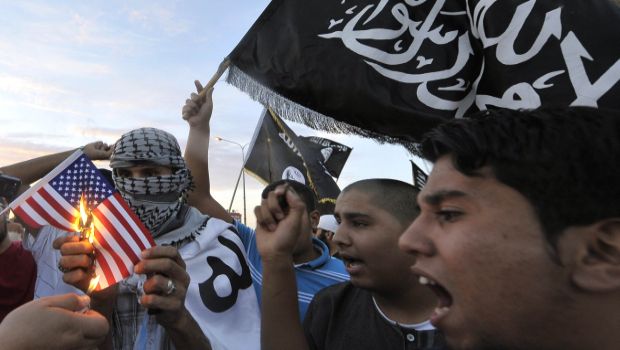Al-Qaeda’s ability to survive, move, recruit, destroy and develop itself and its members has proved how dangerous the organization is. No other group resembling this network of terrorism and misery has emerged in 50 years. No terrorist organization born after World War II can be compared to Al-Qaeda.
The most important weapon it has is manipulating extremist religious thought. This has helped it recruit combatants who are willing to give up their money, their souls and their sons—more than the followers of any other extremist ideology in the world today.
It has remained the most prominent active terrorist organization, despite the fact that most of its early leaders and founders, except for a few like Ayman Al-Zawahiri, have been killed or arrested.
Moreover, the organization was displaced from its first home, Afghanistan, and defeated in Saudi Arabia–its dream land.
In addition, since the 9/11 attacks it has failed to infiltrate American territory.
More than 30 countries have dedicated their capabilities to monitoring and pursuing Al-Qaeda through a quasi-international consensus to fight the most dangerous organization in the world. Despite this, Al-Qaeda continues to operate, and it continues to work to achieve its ends.
Arresting Abu Anas Al-Liby, who appears to have been kidnapped, reminds us that the war is ongoing. Luckily, the Americans are a party in this battle.
This monster dubbed “Al-Qaeda” possesses capabilities that cannot be fought by any one country. There is no doubt that ever since the 9/11 attacks, the Americans have considered Al-Qaeda to be the biggest threat to their security. Thus they decided to dedicate all their capabilities to fighting it.
The war between Al-Qaeda and its rivals is almost a daily pursuit, and it is spread to the far corners of the earth.
What is interesting is that in the 1990s, America—and the West in general—were not entirely convinced that this organization exited or that it followed the ideology it does.
Most of what was written then focused on explaining the phenomenon as one resulting from poverty, unemployment and a lack of political freedoms.
But in this, the second decade after the 9/11 attacks, many realized that Al-Qaeda is a radical ideological movement that has nothing to do with jobs, human rights, freedoms or elections.
Perhaps the model that it resembles most closely is the National Socialism movement in Germany in the 1930s and 1940s, which rejected others and believed that its ideas were superior. But Al-Qaeda is more dangerous, because it exploits religion.
Al-Qaeda has targeted a large number of the world’s governments and has encouraged an alliance committed to fighting it.
If Al-Qaeda had continued to operate like it did in its youth—targeting specific countries like Egypt and Saudi Arabia—the situation would have been more dangerous for Arab states.
Currently, Al-Qaeda does not pose a threat to a specific regime.
However, it is capable of causing harm everywhere. It has proven that it is capable of surviving, hiding and renewing its cells, no matter how much it is pursued. It has also proven that it is capable of juggling and rebuilding its leadership despite the deaths and detentions of its key players.
Al-Qaeda documents previously revealed a dispute among its leaders regarding how the 9/11 attacks should have been carried out.
According to the documents, some objected to the idea of targeting the Americans in their homeland, arguing that such a move must be saved for later.
But Bin Laden knew that attacks against prominent targets, like buildings New York and Washington, would be a message to the world that would highlight their ability, determination and aims.
The attacks they had previously carried out against American interests in Saudi Arabia and Yemen were part of limited battles.
But targeting the United States is what altered the game and changed the world. Arab countries did not have the power to confront this horrifying threat, which is still part of the biggest ongoing war today.
It must also be noted that the Americans could not have won over this extremist organization if it were not for the cooperation of Islamic countries, which better understand local customs and are more capable of confronting the organization’s religious bent.
The Americans, however, continue to dominate the field capabilities in the war against Al-Qaeda.
